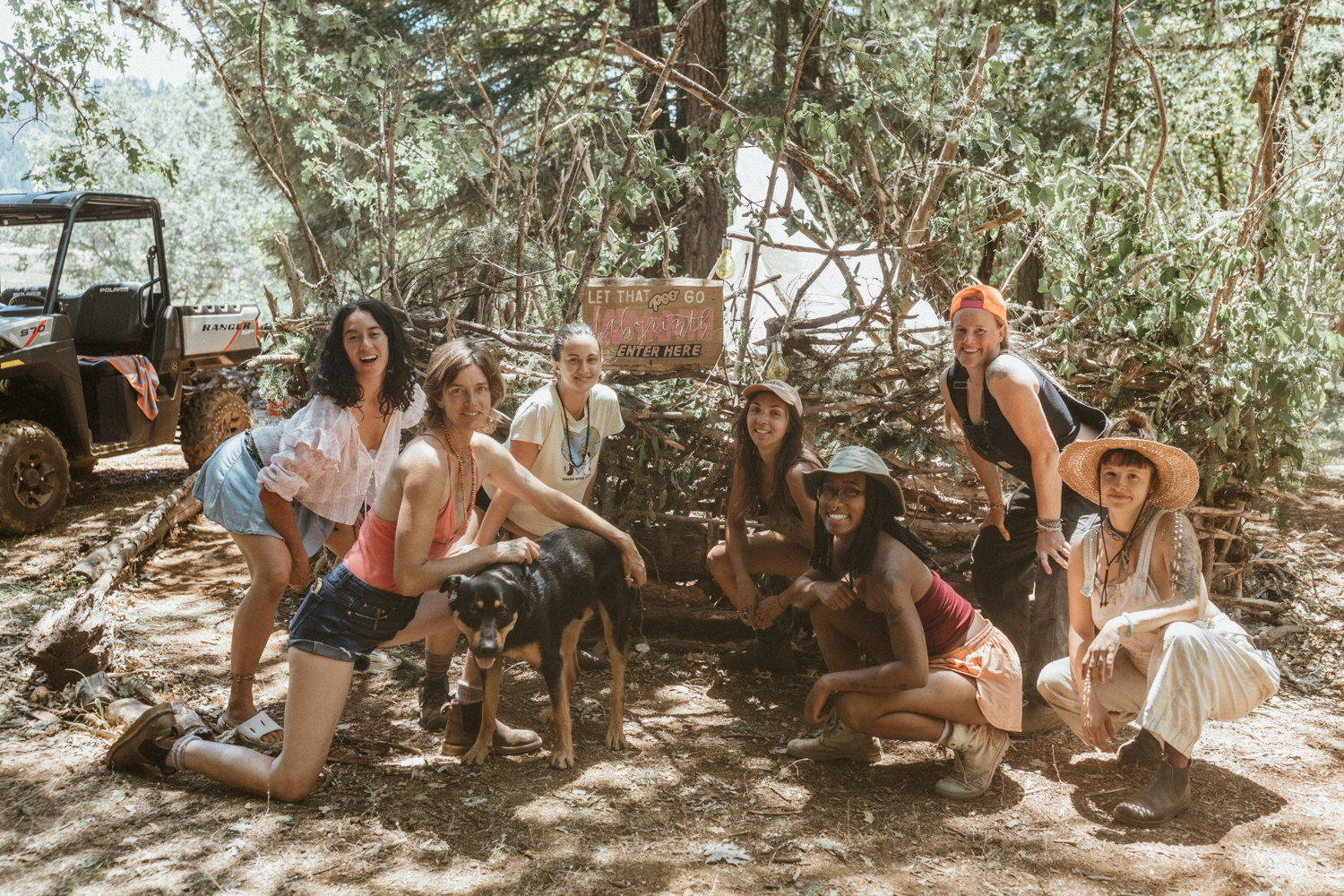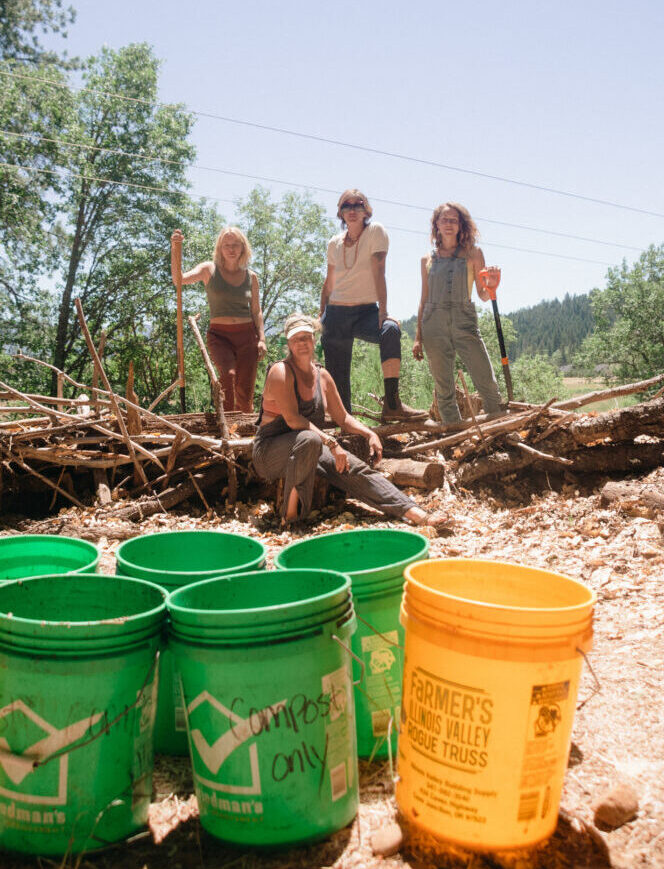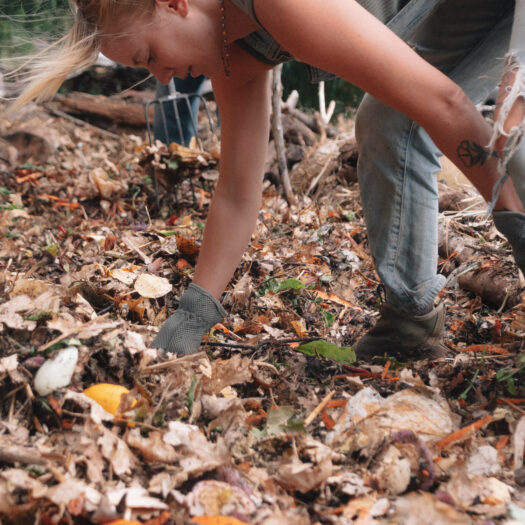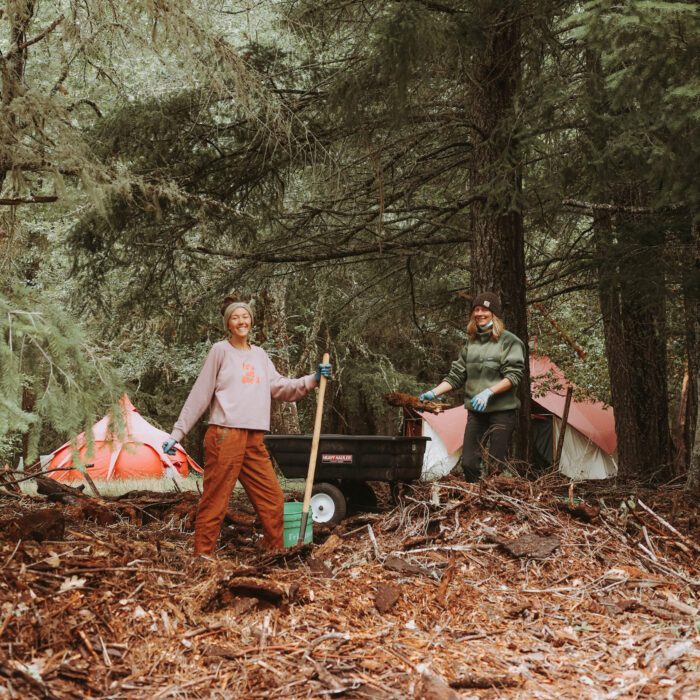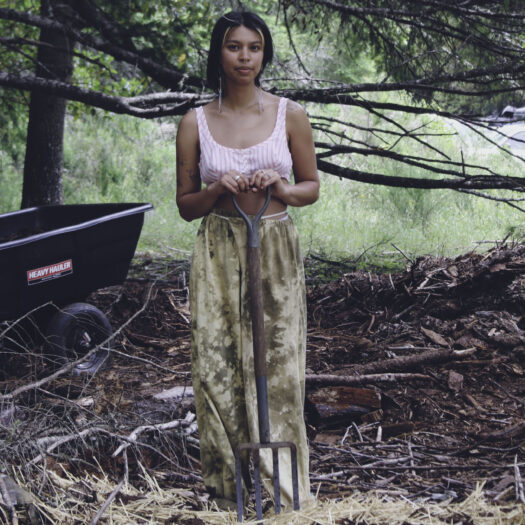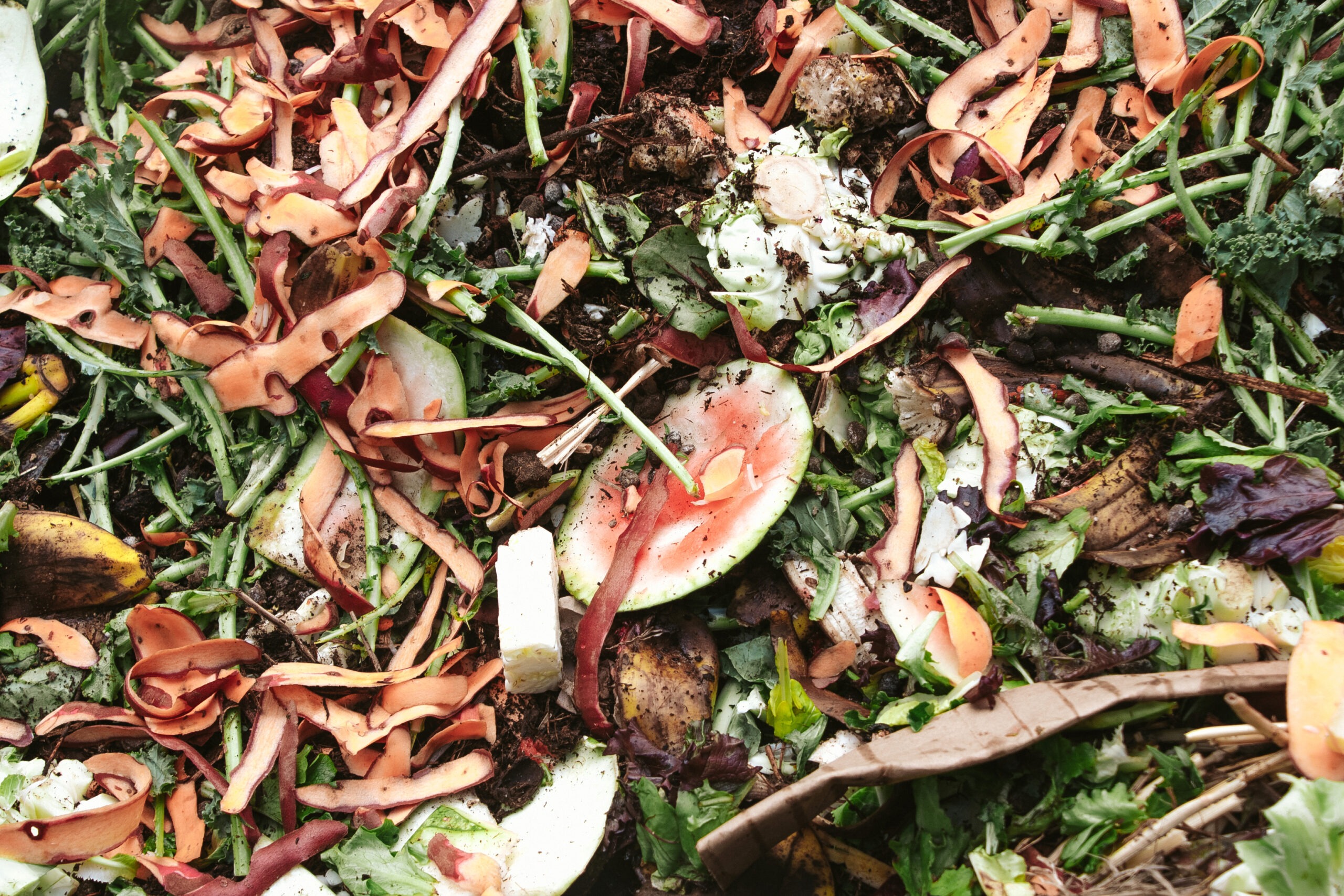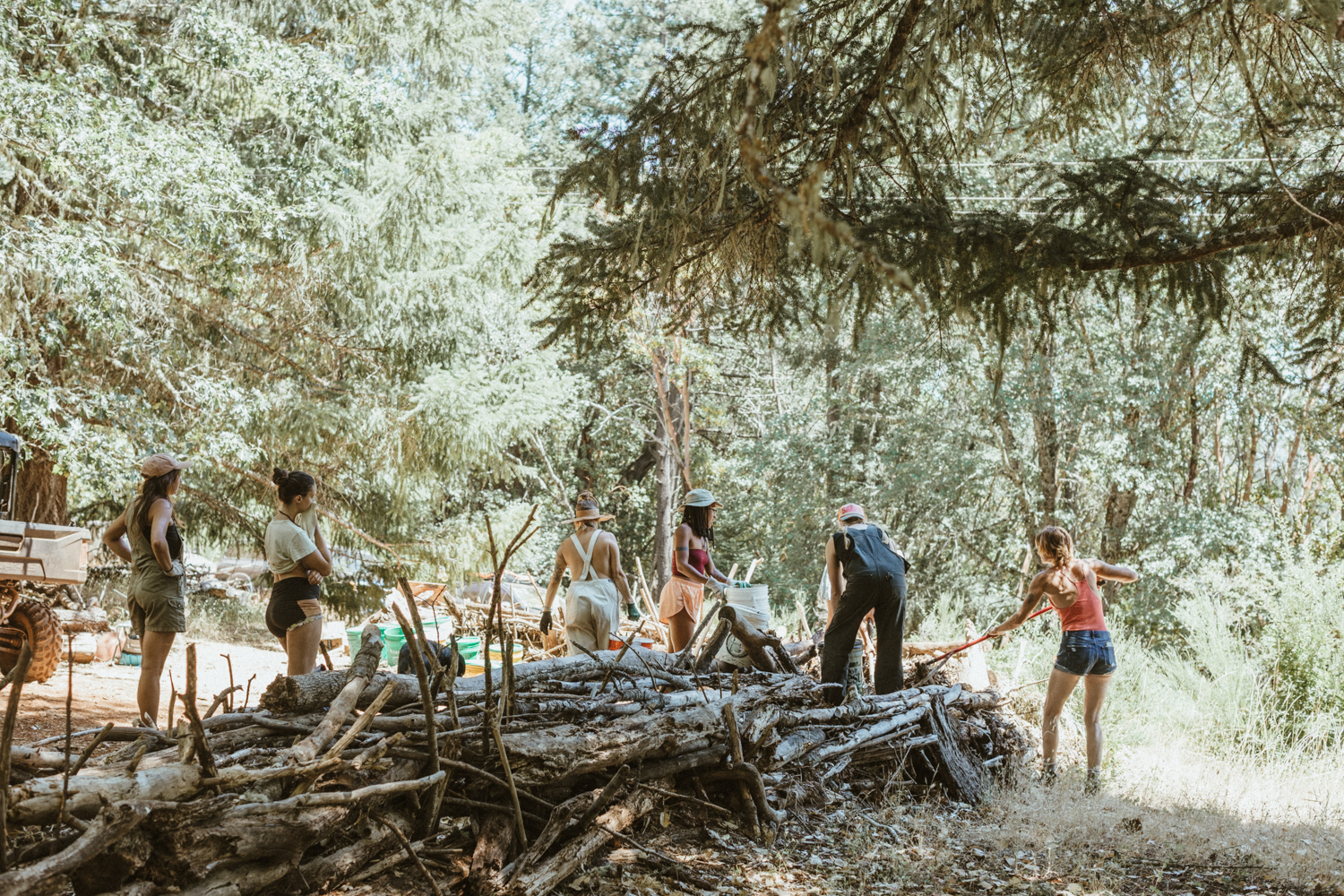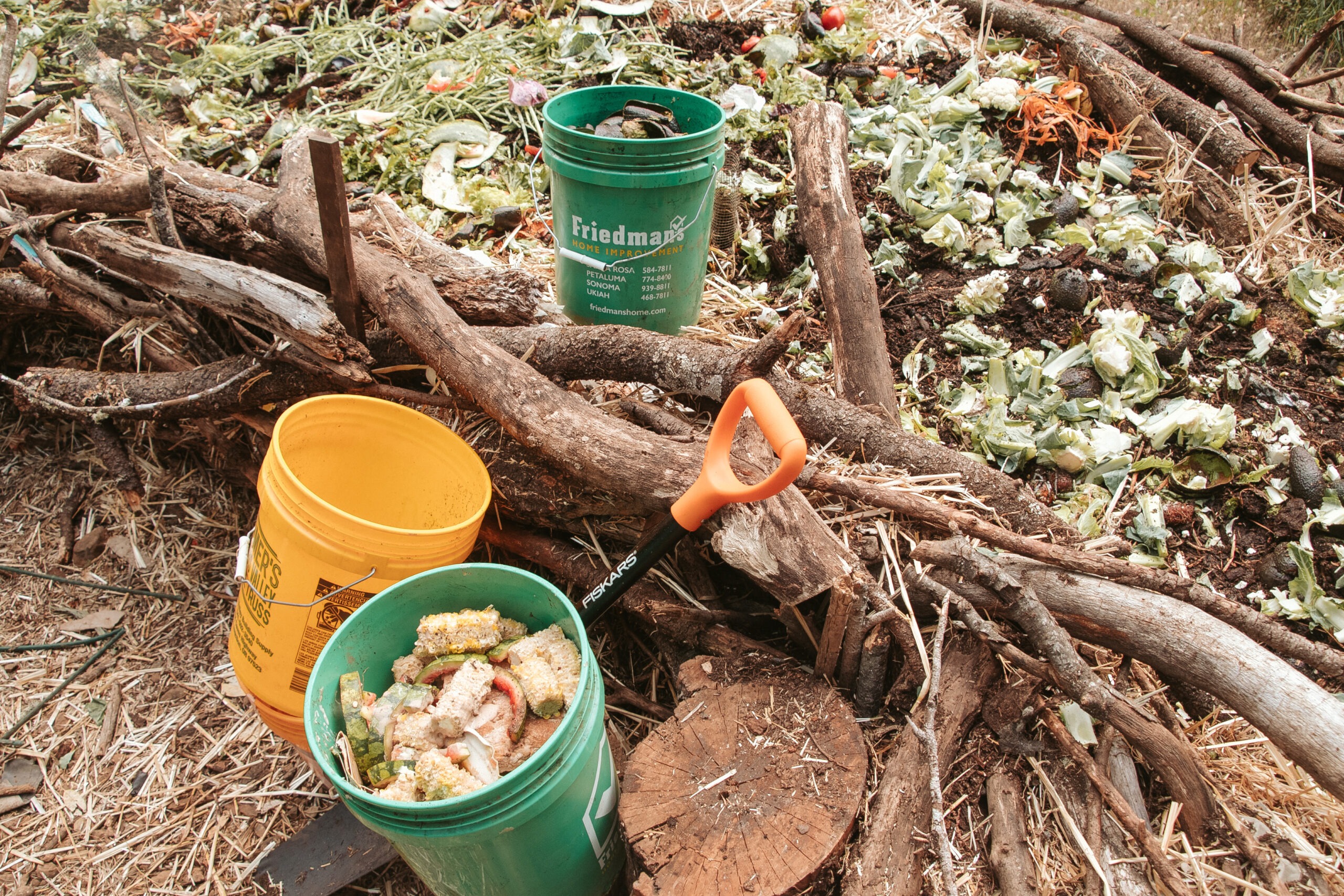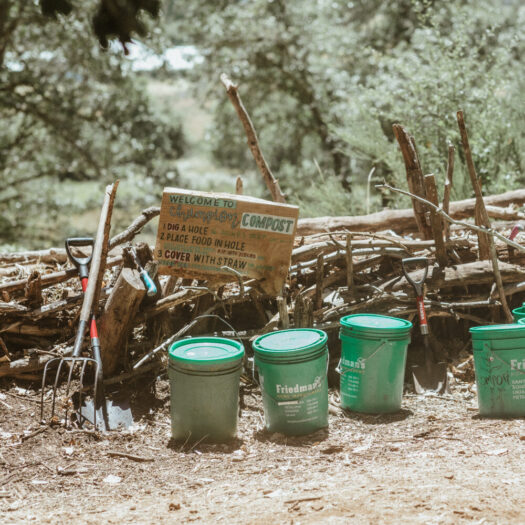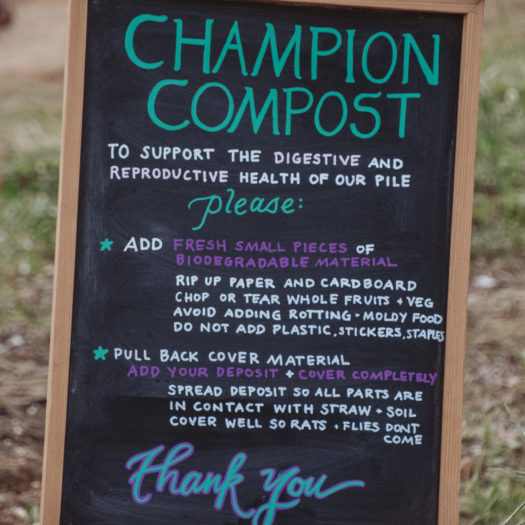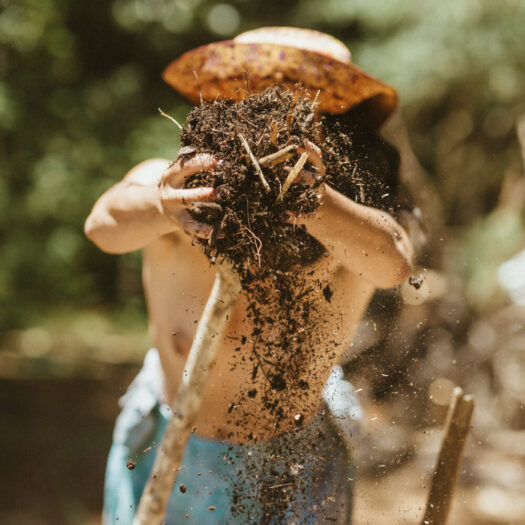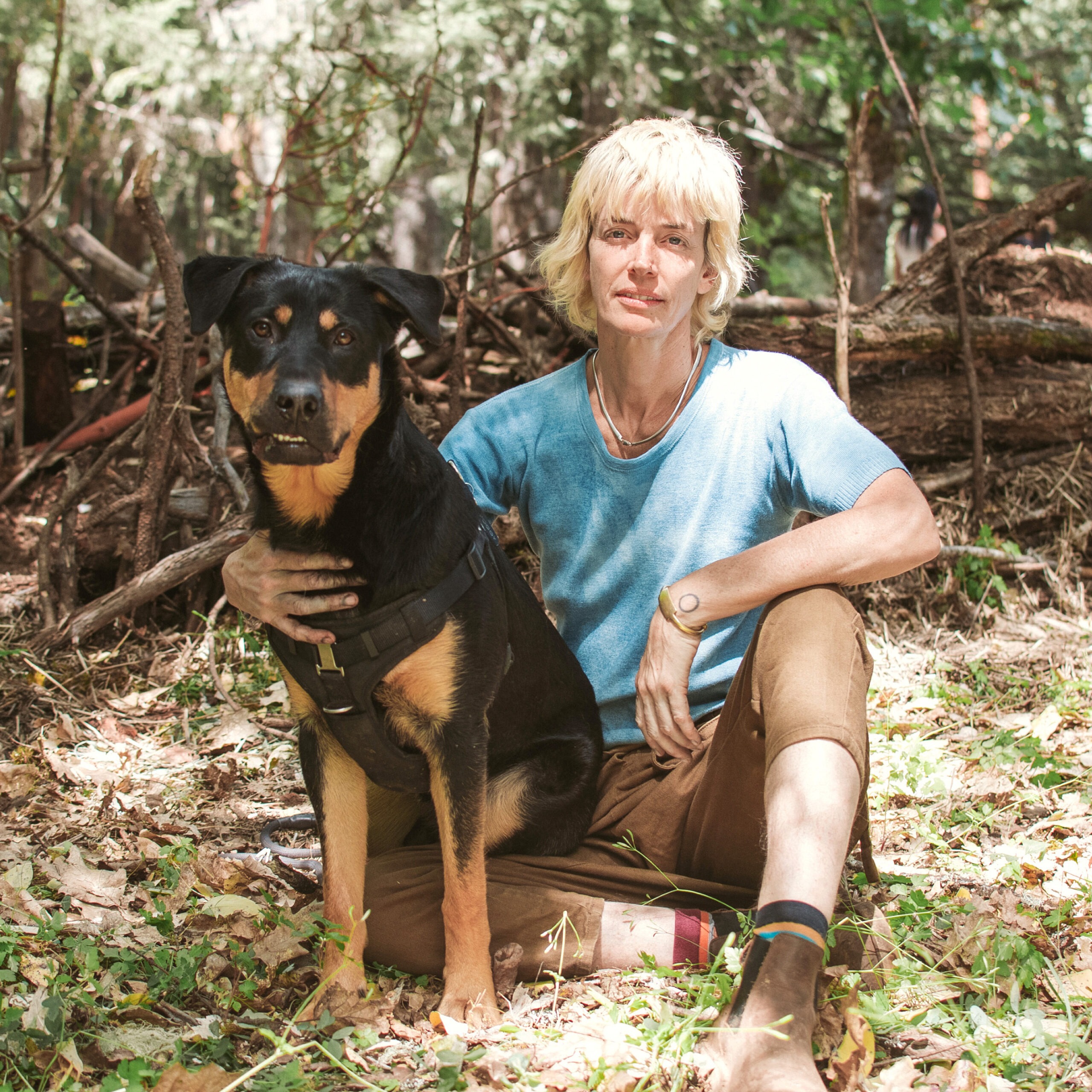Running a large event with 700+ attendees is not easy, and often times, large events and gatherings unfortunately leave an equally large ecological footprint. As we grow and evolve as an event, so do our efforts to become more sustainable as we work to lessen our waste production every year. This is easier said than done, but with collective help, innovative ideas, and ancient practices we can do what we can to make Spirit Weavers a waste conscious, sustainable event.
We are proud to share some of our sustainability efforts that we prioritize as an event.
In addition to requiring all attendees to bring their own plates, cups, bowls, and maintaining a “pack in, pack out” system to encourage less waste, another exciting practice we commit to as a gathering is always composting 100% of our food scraps.
As you can imagine, this is no small task, and we’re grateful to have an amazing team of compost lovers and soil advocates to help.



